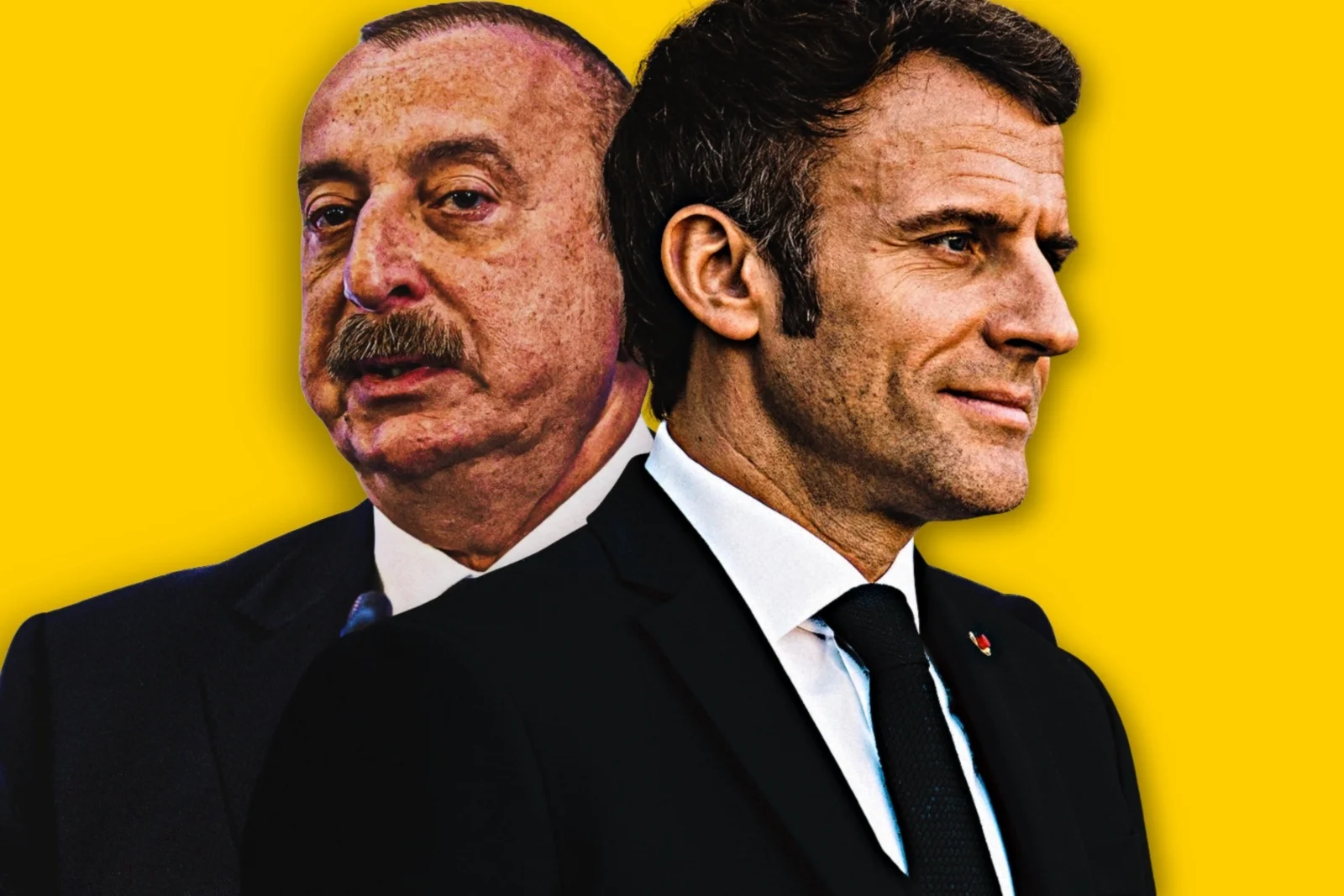
Why Did Azerbaijan-France Ties Go South?
France’s decision to withdraw its top negotiators from the COP29 climate summit in Azerbaijan escalated tensions at a conference already rattled by global political upheaval, including Donald Trump’s unexpected win over Kamala Harris in November. The move marks a new low in the deteriorating relations between Paris and Baku, with far-reaching implications.
The diplomatic fallout was triggered by a speech from Azerbaijan’s President Ilham Aliyev, who accused French President Emmanuel Macron’s government of “brutally” suppressing citizens during protests in New Caledonia. In his remarks, Aliyev described France’s Pacific territories as vestiges of colonialism and criticized its history of nuclear testing in French Polynesia and Algeria.
Unsurprisingly, Paris reacted with indignation. French officials accused Azerbaijan of meddling in France’s internal affairs, particularly those relating to its overseas territories. Macron’s subsequent decision to skip the summit underscored the depth of the diplomatic rift while signaling France’s growing unease with Azerbaijan’s increasingly confrontational posture.
Azerbaijan rejected Paris’s accusations of interference, with Aliyev doubling down on his criticism of France’s overseas governance. He argued that Corsica and other French territories remain under a “colonial yoke,” language that stung in a country deeply sensitive to its colonial past. This dramatic deterioration might seem unexpected for those familiar with the recent history of Azerbaijan-France relations.
From 1995 to 2019, the two nations shared a mutually beneficial economic partnership. French companies invested $2.2 billion in Azerbaijan, with $2 billion directed toward its lucrative oil sector and another $194.1 million into other industries. Azerbaijan reciprocated with $2.6 billion in investments in France. This economic interdependence fostered a balanced diplomatic approach from Paris, particularly in the South Caucasus.
Nicolas Sarkozy’s 2011 visits to Armenia, Azerbaijan, and Georgia highlighted France’s interest in maintaining even-handed engagement in the region. However, this approach has eroded in recent years. A combination of geopolitical developments—including Armenian Prime Minister Nikol Pashinyan’s rise to power in 2018, the fraying Armenia-Russia alliance, the aftermath of the Second Karabakh War, and heightened tensions between France and both Turkey and Azerbaijan—has pushed Paris into an increasingly pro-Armenian stance.
France’s pivot toward Armenia is also influenced by domestic political considerations. The country hosts Europe’s largest Armenian diaspora, estimated at 650,000 people, who wield significant influence over French politics, media, and society. Traditional Armenian political parties such as the Armenian Revolutionary Federation (Dashnaktsutyun) and other advocacy groups have long shaped public discourse and policy in France.
This influence was evident in June when French Defense Minister Sébastien Lecornu announced the sale of 36 Caesar self-propelled howitzers to Armenia. The arms deal provoked sharp reactions from Azerbaijan and Russia alike. Azerbaijan’s Defense Ministry branded the sale “provocative,” warning it could transform the region into a “hotbed of war.”
Baku’s reaction reflects a deep-seated hostility toward Paris, rooted in France’s steadfast support for Armenia during the three-decade-long Karabakh conflict. That conflict, which ended last year with Azerbaijan’s decisive victory, left scars that continue to shape regional dynamics. President Aliyev has sought to exclude France from the ongoing Karabakh peace process, presenting Paris as an untrustworthy actor. Furthermore, he has taken the unusual step of leading a global campaign against French “neocolonialism,” including forming the “Baku Initiative Group Against French Colonialism.”
France’s growing support for Armenia is not purely emotional or historical; it is a strategic calculation. Paris aims to secure influence in the South Caucasus, a region whose geopolitical importance has only increased as Europe reassesses its relationships with Russia, Turkey, and Central Asia. France’s leadership within the European Union has positioned it as a key advocate for Armenia, culminating in a $350 million EU aid package for Yerevan, finalized during recent meetings with European Commission President Ursula von der Leyen and U.S. Secretary of State Antony Blinken.
While progress has been made toward a peace agreement between Armenia and Azerbaijan, any miscalculation by either side could see renewed fighting. Both nations continue to navigate deeply entrenched grievances, and France’s involvement has not been without controversy. Macron’s overtures to Armenia risk alienating Azerbaijan and complicating the delicate balance required for lasting peace.
For years, Western nations have treated the Armenia-Azerbaijan conflict as a niche issue, relegated to specialized diplomats while broader regional strategy focused elsewhere. This approach has proven inadequate. While not directly involved in mediation, the EU plays a crucial role in implementing agreements on the ground and ensuring regional stability.
A more engaged and coordinated Western approach is urgently needed. Without proactive intervention, the risk of renewed violence looms large. Azerbaijan and Armenia’s ongoing tensions, compounded by external actors, could ignite another devastating conflict. Such an outcome would destabilize the South Caucasus and undermine Europe’s credibility in managing its eastern neighborhood.
The souring of Azerbaijan-France relations is emblematic of a broader, unsettled geopolitical landscape. What began as a clash over rhetoric has exposed deeper fractures in regional and global politics. As Azerbaijan positions itself as a champion of post-colonial struggles and France recalibrates its strategy in the South Caucasus, the stakes are rising. Whether these tensions can be de-escalated depends on the willingness of all parties—not just Baku and Paris, but also Brussels and Washington—to engage with the region’s complexities and prioritize peace over power.
